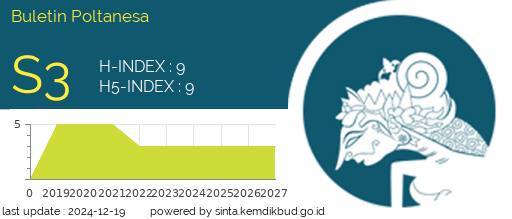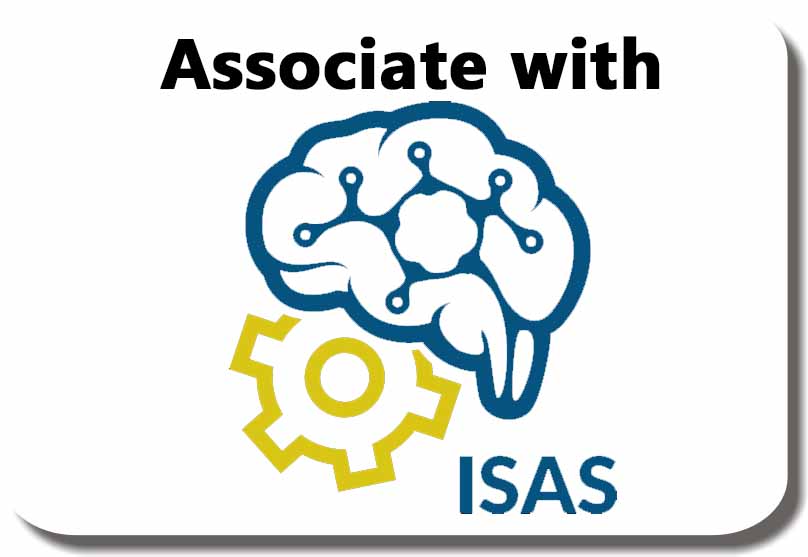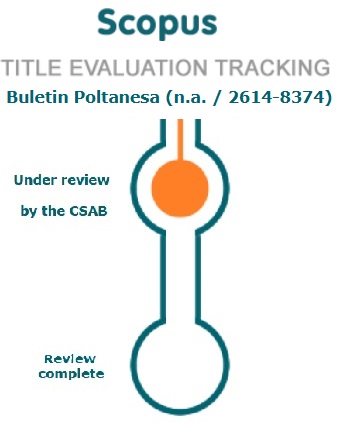The Impact of Motivation and Commitment on Gen Z Work Performance in the Jabodetabek Area
DOI:
https://doi.org/10.51967/tanesa.v25i1.3034Keywords:
Gen Z, Motivation, Commitment, Work Performance, Jabodetabek Area, Employee Performance, Work-Life BalanceAbstract
This study explores the impact of motivation and commitment on the work performance of Gen Z (Generation Z) employees in the Jabodetabek area. The study aims to identify the most significant factors influencing the work performance of Gen Z in the Jabodetabek area, a demographic group known for their technological fluency and career development aspirations, and focus on work-life balance. The research employs a quantitative approach. The findings contribute to understanding how motivation and commitment can be leveraged to improve work performance in the Jabodetabek region, a critical hub for businesses and organizations in Indonesia. The study's results provide valuable insights for managers and policymakers seeking to optimize the performance of their workforce, particularly in the context of the evolving work dynamics driven by digitalization and the changing preferences of younger generations. This research helps to see the development of employee performance, especially in Gen Z, a generation that has just entered the world of work. The results showed that work motivation contains a positive and critical impact on the performance of Gen Z workers, work commitment encompasses a positive and noteworthy impact on the performance of Gen Z workers, also simultaneously work motivation and work commitment have a positive and noteworthy impact on the performance of Gen Z workers in Jabodetabek area
References
Pengaruh motivasi kerja, lingkungan kerja, budaya kerja terhadap kinerja karyawan dinas sosial kabupaten Jember. Jurnal Penelitian IPTEKS, 4(1), 47-62.
Aisah, S. N., & Wardani, R. (2020). Pengaruh gaya kepemimpinan terhadap kinerja karyawan. Bulletin of Management and Business, 1(2), 42-50.
Arnolds, C. A., & Boshoff, C. (2004). Managing the early stages of restructuring in a tertiary-education institution- an organizational commitment perspective. South African Journal of Business Management, 35(2), 1-13.
Dharma, Y. (2018). The effect of work motivation on employee performance with organization citizenship behavior as an intervening variable at Bank Aceh Syariah. In Proceedings of MICoMS 2017 (Vol. 1, pp. 7–12). Emerald Publishing Limited.
Falah, A. M., & Ayuningtias, H. G. (2020). Pengaruh Motivasi Kerja Terhadap Kinerja Karyawan PT. Xyz. Jurnal Mitra Manajemen, 4(6), 990-1001.
Hariani, M., Arifin, S., & Putra, A. R. (2019). Pengaruh Iklim Organisasi, Pengalaman Kerja dan Motivasi Kerja terhadap Komitmen Kerja Karyawan. Management & Accounting Research Journal, 3(2).
Irena, L., & Rusfian, E. Z. (2019). Hubungan gaya kepemimpinan transformasional dan komunikasi internal dengan kinerja karyawan generasi Z pada tech company. Jurnal Komunikasi, 11(2), 223-232.
Jufrizen, J. (2021). Pengaruh fasilitas kerja dan disiplin kerja terhadap kinerja karyawan melalui motivasi kerja. Sains Manajemen: Jurnal Manajemen Unsera, 7(1), 35-54.
Kansaki, T., Nugroho, N., Hutabarat, F. A. M., & Ciamas, E. S. (2021). Gaya Kepemimpinan Terhadap Motivasi Kerja Gen-Z (Studi Kasus pada Mahasiswa Politeknik Cendana Medan). ARBITRASE: Journal of Economics and Accounting, 2(2), 46-50.
Khair, H. (2019). Pengaruh Kepemimpinan dan kompensasi terhadap kepuasan kerja melalui motivasi kerja. Maneggio: Jurnal Ilmiah Magister Manajemen, 2(1), 69-88.
Kristiani, S., Fitria, H., & Mulyadi, M. (2022). Pengaruh Gaya Kepemimpinan dan Motivasi Kerja Terhadap Kinerja Guru. Jurnal Pendidikan Tambusai, 6(3), 14064-14063.
Kurniawan, H. (2022). Literature Review: Analisis Kinerja Pegawai Melalui Komitmen Organisasi Kompensasi Dan Motivasi. Jurnal Ekonomi Manajemen Sistem Informasi, 3(4), 426-441.
Lantara, I. W. A. (2018). Pengaruh Motivasi Kerja Terhadap Kinerja Karyawan Dengan Kepuasan Kerja Sebagai Variabel Intervening Di Pt. Indonesia Tourism Development Corporation (Itdc). Jurnal Pendidikan Ekonomi Undiksha, 10(1), 231-240.
Lee, C. C., & Cheng, P. Y. (2018). Effect of the critical human resource attributes on operating performances. Chinese Management Studies, 12(2), 407–432.
Ma’ruf, & Chair, U. (2020). Pengaruh Motivasi Kerja Terhadap Kinerja Karyawan Pada PT. Nirha Jaya Tehnik Makassar. Jurnal Brand, 2(1).
Manurung, N., & Riani, A. L. (2017). Pengaruh disiplin kerja, motivasi kerja, kepuasan kerja dan kompetensi terhadap komitmen organisasi. Jurnal Manajemen Dayasaing, 18(1), 10-19.
Marewo, N. T., Mutongi, C., Nyoni, T., & Nyoni, S. P. (2020). The Impact of Employee Motivation on Employee Performance. International Journal of Advance Research and Innovative Ideas in Education, 6(6), 1487–1502.
Marjaya, I., & Pasaribu, F. (2019). Pengaruh kepemimpinan, motivasi, dan pelatihan terhadap kinerja pegawai. Maneggio: Jurnal Ilmiah Magister Manajemen, 2(1), 129-147.
Mehta, R., Anderson, R. E., & Dubinsky, A. J. (2000). The perceived importance of sales managers’ rewards: A career stage perspective. Journal of Business & Industrial Marketing, 15(7), 507–524.
Pratama, G., & Elistia, E. (2020). Analisis motivasi kerja, kepemimpinan transformasional dan budaya organisasi terhadap kinerja karyawan dimediasi kepuasan kerja pada angkatan kerja generasi Z. Jurnal Ekonomi: Journal of Economic, 11(02).
Purnama, M. W. D., Rahmawati, P. I., & Yulianthini, P. (2020). Pengaruh sistem pengembangan sumber daya manusia terhadap kinerja karyawan di PT. Arta Sedana Singaraja. PROSPEK: Jurnal Manajemen Dan Bisnis, 2(1), 101-110.
Putra, Y. P. (2021). Pengaruh Lingkungan Kerja, Stress Kerja, Dan Motivasi Kerja Terhadap Kinerja Karyawan. Jurnal Bingkai Ekonomi (JBE), 6(2), 71-83.
Rachmawan, P. T., & Aryani, D. N. (2020). Kepemimpinan spiritual dan reward terhadap kinerja pegawai melalui kualitas kehidupan kerja dan kepuasan kerja sebagai variabel intervening. Jurnal Ilmiah Manajemen Dan Bisnis, 21(2), 136-148.
Ramadanita, D. N., Nugroho, E. S., & Suyaman, D. J. (2021). Pengaruh Reward dan Punishment Terhadap Kinerja Karyawan PT Glenmore Agung Nusantara. Syntax Literate, Jurnal Ilmiah Indonesia, 6(1), 173-183.
Ratna Sari, H. F., Ekawarna, E., & Sulistiyo, U. (2022). Pengaruh Stres Kerja, Motivasi Kerja dan Kepuasan Kerja Terhadap Kinerja Guru. Edukatif: Jurnal Ilmu Pendidikan, 4(1), 1204-1211.
Rozalia, N. A., Nayati, H., & Ruhana, U. I. (2015). Pengaruh motivasi kerja dan disiplin kerja terhadap kinerja karyawan (studi kasus pada karyawan PT. Pattindo Malang). Jurnal Administrasi Bisnis, 26(2).
Saleh, A. R., & Utomo, H. (2018). Pengaruh disiplin kerja, motivasi kerja, etos kerja dan lingkungan kerja terhadap produktivitas kerja karyawan bagian produksi di pt. Into java Semarang. Among Makarti, 11(1).
Sihombing, S., Astuti, E. S., Al Musadieq, M., Hamied, D., & Rahardjo, K. (2018). The effect of servant leadership on rewards, organizational culture and its implication for employee’s performance. International Journal of Law and Management, 60(2), 505-516.
Suhartini, E., Aprisal, A., & Rahman, M. A. (2019). Komparasi Pengaruh Reward dan Punishment Terhadap Motivasi Kerja. Management and Accounting Expose, 2(2), 98-104.
Susanto, N. (2019). Pengaruh motivasi kerja, kepuasan kerja, dan disiplin kerja terhadap kinerja karyawan pada Divisi Penjualan PT Rembaka. Agora, 7(1).
Suyanto, S. (2018). Competence and discipline on work motivation and the implication on working performance.
Syafiq, S. S. (2021). Pengaruh Motivasi, Reward Dan Punishment Terhadap Kinerja Karyawan (Studi kasus Klinik Kecantikan Puspita Bandar Lampung). Jurnal Ilmu Manajemen Saburai (JIMS), 7(1), 57-66.
Taba, M. I. (2018). The mediating effect of work performance and organizational commitment in the relationship between reward system and employees’ work satisfaction. Journal of Management Development, 37(1), 65–75.
Wibowo, I. G. P., Riana, G., & Putra, M. S. (2015). Pengaruh stres kerja terhadap kepuasan kerja dan komitmen organisasional karyawan. E-Jurnal Ekonomi dan Bisnis Universitas Udayana, 4(2), 125-145.
Wirawan, A., & Afani, I. N. (2018). Pengaruh Reward dan punishment terhadap kinerja dan motivasi karyawan pada Cv Media Kreasi Bangsa. Journal of Applied Business Administration, 2(2), 242-257.
Yani, J. A. Sugiyono. 2017. Metode Penelitian Kuantitatif, Kualitatif, Dan R&D. Bandung: Alfabeta.
Yanuari, Y. (2019). Analisis pengaruh motivasi kerja dan lingkungan kerja terhadap kinerja karyawan. BASKARA: Journal of Business and Entrepreneurship, 2(1), 45–54.
Zahro, D. A., & Nugraha, J. (2021). Analysis of Mendeley using the technology acceptance model (tam) approach: Study students of office administration education at Surabaya State University. Jurnal TAM (Technology Acceptance Model), 12(1), 33-40.
Zhang, J., Zhang, Y., Song, Y., & Gong, Z. (2016). The different relations of extrinsic, introjected, identified regulation and intrinsic motivation on employees’ performance: Empirical studies following self-determination theory. Management Decision, 54(10), 2393–2412.
Downloads
Published
How to Cite
Issue
Section
License
Copyright (c) 2024 Buletin Poltanesa

This work is licensed under a Creative Commons Attribution-ShareAlike 4.0 International License.
The copyright of this article is transferred to Buletin Poltanesa and Politeknik Pertanian Negeri Samarinda, when the article is accepted for publication. the authors transfer all and all rights into and to paper including but not limited to all copyrights in the Buletin Poltanesa. The author represents and warrants that the original is the original and that he/she is the author of this paper unless the material is clearly identified as the original source, with notification of the permission of the copyright owner if necessary.
A Copyright permission is obtained for material published elsewhere and who require permission for this reproduction. Furthermore, I / We hereby transfer the unlimited publication rights of the above paper to Poltanesa. Copyright transfer includes exclusive rights to reproduce and distribute articles, including reprints, translations, photographic reproductions, microforms, electronic forms (offline, online), or other similar reproductions.
The author's mark is appropriate for and accepts responsibility for releasing this material on behalf of any and all coauthor. This Agreement shall be signed by at least one author who has obtained the consent of the co-author (s) if applicable. After the submission of this agreement is signed by the author concerned, the amendment of the author or in the order of the author listed shall not be accepted.











